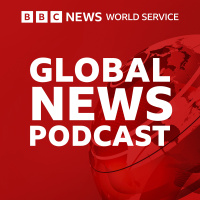Sinopsis
The daily drama of money and work from the BBC.
Episodios
-
How batteries are powering ahead
16/06/2020 Duración: 17minTesla's Elon Musk plans to make some big announcements about batteries that could transform cars, electricity and the fight against climate change.Justin Rowlatt gets the inside scoop from Seth Weinbaum, journalist at the electric vehicles news-site Electrek. Meanwhile, battery chemist Paul Shearing of University College London and the Faraday Institution explains how lithium-ion batteries made the smartphone possible, and are now set to revolutionise transport.But electrifying the world's one billion road vehicles is no small task, not to mention building even bigger batteries to stabilise renewable energy sources on our electricity grids. Where on earth will all the lithium come from? Justin speaks to another American tech entrepreneur who thinks he has the answer - Teague Egan of start-up EnergyX.Producer: Laurence Knight(Picture: Battery charging icons; Credit: Iuliia Kanivets/Getty Images)
-
A conversation with Dr Ngozi Okonjo-Iweala
15/06/2020 Duración: 17minThe Nigerian economist and former World Bank managing director talks about Africa, Covid-19, boardroom diversity, and her hopes to lead the World Trade Organisation.She is one of several candidates vying for the position, after the current managing director unexpectedly resigned a year early. But at a time when trade is suffering from the ravages of a sceptical Trump administration and a pandemic, is the job something of a poisoned chalice? And what would it mean for an African woman to take over?The former Nigerian finance minister now holds multiple jobs - on the boards of Twitter, Standard Chartered Bank, and the Global Alliance for Vaccines and Immunization. They give her a unique perspective on many of the challenges now facing the planet. But Manuela Saragosa asks her whether she thinks the pool of Africans invited to these top positions needs to be widened.Correction: During the programme, the departing head of the WTO Roberto Azevedo is erroneously referred to as Mexican. Mr Azevedo is actually from B
-
Business Weekly
13/06/2020 Duración: 49minBusiness Weekly continues the conversation around race and racism sparked by the death of George Floyd. We’ll be asking whether African Americans should be paid reparations for their ancestors' enslavement. We’ll hear from Bob Johnson, the founder of Black Entertainment Television. Mae Jamison, the first woman of colour in space, gives us her thoughts on how today’s protesters differ from those in the 1960s when she was a young girl in Chicago. Plus, the Coronavirus pandemic has changed the way that a lot of us work, so we’ll be asking whether office buildings ever be the same again. Presented by Lucy Burton.
-
Greece: Will the tourists come?
12/06/2020 Duración: 18minAs Greece prepares to reopen its beaches, tavernas and ancient monuments for the summer season, the country is anxious that few tourists will turn up, and those that do could bring the coronavirus back with them.Manuela Saragosa asks tourism minister Harry Theoharis whether his country is being reckless in opening up so quickly, having so successfully contained the virus within its own borders.Meanwhile Florian Schmitz reports from the island of Thassos, where many restaurants and cafes may not bother opening for the season as the demands of social distancing and the expected paucity of customers make it hardly worth the effort.Plus travel writer Simon Calder discusses how the coronavirus is likely to transform the character of tourism this season, and perhaps in the long-term too.(Picture: Empty sun chairs on a sandy Greek beach; Credit: mbbirdy/Getty Images)
-
Russia's covid crisis
11/06/2020 Duración: 17minRussia is ending its lockdown as officials congratulate citizens on a shared victory. But with infection rates still sky-high, some say it's premature, and that it's more to do with politics than the best interests of the nation. What's at stake for Russia and its strongman, Vladimir Putin? On this edition of the programme, we hear from Dmitry Nechaev who runs a bicycle workshop in Moscow on his fears for the future. Economist Sergei Guriev talks about the economic impact of the pandemic on Russia's economy and the country's small businesses; and Catherine Belton, author of Putin's People, explains the political fallout of Vladimir Putin's handling of the crisis.(Image: A commuter in a face masks on a Moscow Underground train. Credit: Getty Images).
-
Reparations for African-Americans
10/06/2020 Duración: 17minThis is an old idea gaining new currency amidst the latest Black Lives Matter protests. Should billions of dollars in damages now be paid to descendents of African-American slaves for the sins of the past. How would this happen? Why? And would modern white America ever agree to it? One man who's long thought so is Bob Johnson, founder of Black Entertainment Television and RLJ technologies and who became the first US African-American billionaire in the 1990s. Ed Butler also speaks to Professor William Darity, an economist of Public Policy at Duke University. He's written a book on the reparations idea, "From Here to Equality". He also hears from Caitlin Rosenthal, an historian at the University of Berkeley who has studied this era, and the enormous economic boon that slavery brought to the emerging industrial superpower, the United States of America. (Photo credit: Getty Images)
-
Bill Gates: the ‘voodoo doll’ of Covid conspiracies
09/06/2020 Duración: 17minWhy are there so many conspiracy theories swirling in the online world about billionaire philanthropist Bill Gates? Jane Wakefield explores why people might seek conspiracy theories, and asks if they are just part of the online rumour-mill, or can cause actual harm. Jane hears from Rory Smith from fact-checkers First Draft News, from Marianna Spring from the BBC’s anti-disinformation team, and from Professor Joseph Usinski, who argues that these kinds of theories have always been a part of life, and most die away naturally. But Rory Smith and Bill Gates himself warn that they could harm vaccine uptake, and are more than a bit of online fun. Photo of Bill Gates, photo credit AFP/Getty
-
Offices and cities after coronavirus
08/06/2020 Duración: 18minDoes commuting into the office have a future? Manuela Saragosa speaks to Mike Hampson, chief executive of Bishopsgate Financial, which has permanently closed its office in London's financial district in favour of home working. Luke Philpott from the commerical property agents DeVono Cresa describes the steep drop in demand for office space during the lockdown, while Tom Carroll from the commercial property company JLL argues that the office still has a crucial role to play in company life. And urbanist Richard Florida from the University of Toronto explains why cities will continue to be vital centres of business and innovation, despite the impact of the virus.(Photo: The skyline of London's financial district, Credit: Getty Images)
-
Business Weekly
06/06/2020 Duración: 49minProtests over the death of George Floyd have swept across the United States. On Business Weekly we ask what companies should be doing to help in the fight for racial equality. We hear from the National Black Chamber of Commerce and the National Retail federation in the US. Plus we get the point of view of a shop owner in Minneapolis who’s premises was destroyed by in the rioting after George Floyd’s death. This is happening against a backdrop of pandemic - we’ll find out why different US states are taking such radically different steps to defeat the coronavirus. Plus after weeks of lockdown in France bars and cafe’s have re-opened - but it’s not entirely business as usual. Lucy Burton presents.
-
The precarious world of sex work
05/06/2020 Duración: 17minSex workers, like so many others, have seen their incomes disappear overnight since the start of the pandemic. While in some cities businesses are slowly reopening, the sex trade carries with it a high risk of transmitting the coronavirus. It’s an industry where regulations vary wildly across the globe, but sex workers everywhere are deeply anxious about their future and safety. Vivienne Nunis hears from the Daulatdia brothel in Bangladesh, where women and children have been trapped for months. She also speaks to an escort in Australia who has been forced to take her business online. Plus, Teela Sanders, criminology professor at the University of Leicester, explains how sex workers are facing added challenges accessing healthcare, leading to an innovative solution in Nairobi.(Image: Escort Estelle Lucas. Credit: Estelle Lucas)
-
Black Lives Matter: What should businesses do?
04/06/2020 Duración: 17minLarge corporations around the world are using their social media accounts and PR machines to announce support for those people protesting in the wake of the George Floyd killing. But are corporate expressions of support mere publicity exercises, and do they crowd out the space for more marginalised voices at times of crisis? Manuela Saragosa asks Dometi Pongo, MTV News Host, how he sees the role of corporate media and broadcasting. Also, what proactive steps could the wider business community take to address systemic racism in their society? John Harmon, Board Member of the National Black Chamber of Commerce, explains what can be learnt from the accumulated experience of black business owners. We'll also hear from Matthew Shay, president of the National Retail Federation, and Jim Segal, whose shop in Minneapolis was destroyed in the rioting after George Floyd was killed by police.Producers: Frey Lindsay, Laurence Knight(Picture: Protestors in Manhattan,June 02, 2020. Picture credit: Getty Images)
-
Nouriel Roubini: The global economy after coronavirus
03/06/2020 Duración: 17minEconomist Nouriel Roubini predicted the 2008 financial crisis. Now he says a new Cold War could be on the way. The BBC's Karishma Vaswani spoke with him in-depth to find out why. Amongst other reasons, Roubini says America's failure in global leadership on coronavirus, trade tensions and the spat over Huawei and 5G could lead China to flex its muscle on the world stage, and he's not sure the US is up to it this time. At the same time, how much should we worry about one economist's predictions? Manuela Saragosa and Karishma discuss.(Picture: Dr. Nouriel Roubini. Picture credit: Getty Images.)
-
Universities face a shortage of students
02/06/2020 Duración: 17minStudents due to start university or college this autum are in the dark over what kind of education they can expect under social distancing measures. Many are choosing to defer their studies, and institutions may miss out on billions of dollars in fees. Student Jorge Beltrao tells us why he's planning to take a gap year instead of beginning his degree, and Zamzam Ibrahim, president of the UK's National Union of Students, explains why he's not alone. Kim Weeden, professor of sociology at Cornell University in the US, explains why college campuses are such a worry when it comes to the spread of viruses. Professor Professor Peter Mathieson, principle and vice-chancellor of the University of Edinburgh in the UK, says students can expect a good education regardless of restrictions. Simon Marginson, professor of higher education at Oxford University explains why a shortfall in international students in particular could hit universities in the English speaking world.(Photo: High school students hold their graduation
-
Coronavirus in the Red States
01/06/2020 Duración: 17minCoronavirus outbreaks continue in various patterns around the United States, even as some state governors press ahead with lifting lockdowns. Particularly in rural states, support for getting back to normal has intensified, as some Americans feel their liberties are being trodden on by an overzealous public health regime. For epidemiologists such as Tara Smith, professor at the Emerging Infections Laboratory at Kent State University, this is a worrying trend as many rural areas are yet to fully experience the impact of coronavirus. And the medical and cultural anthropologist Martha Lincoln of San Francisco State University fears coronavirus strategies may have been consigned to the culture wars that have been raging between the left and right in the US for decades. But Florida political consultant and Republican Chris Ingram says there needs to be a balance in the response to COVID-19 and that some parts of the media and public health authorities have lost perspective.Producer: Frey Lindsay.(Picture: A protes
-
Business Weekly
30/05/2020 Duración: 49minIn this episode of Business Weekly we’ll be looking a the idea of covid-19 immunity passports. Could they be a willy wonka-esque golden ticket that frees the owner from lockdown if they’ve had the disease? Some businesses and governments are certainly hopeful. However, the WHO warns that it doesn’t know how much immunity Covid survivors get. We will debate the pros and cons. With Hollywood halted, what will the future of film be after the pandemic? Will we stay happily streaming from our sofas, leaving cinemas obsolete? We’ll also take a look at some of the dubious cures for the Coronavirus that have been advertised on social media. Clearly none of them work, so why are people taken in? And we look back at the life and times of the King of Gambling, Macau’s Stanley Ho, who died this week. Presented by Lucy Burton.
-
Is coronavirus the EU's defining moment?
29/05/2020 Duración: 17minThe coronavirus epidemic has wreaked economic destruction across Europe but now the European Union has unveiled an ambitious recovery plan. It will involve all 27 member states working together as one like never before with a 750 billion euro plan to help the worst hit countries, funded by collective debt. Is this the defining moment for the EU that some are claiming? Former Italian PM Enrico Letta thinks that it's a turning point for the EU, but Northern neighbours in Sweden and the Netherlands urge caution. MEP Derk Jan Eppink calls it a 'coup', whilst Sweden's European Affairs Minister, Hans Dahlgren insists that money needs to be paid back. Manuela Saragosa presents. (Image: Ursula von der Leyen, Credit: Reuters)
-
The business case for immunity passports
28/05/2020 Duración: 17minAntibody testing to see if a patient has had coronavirus is becoming more frequent. Many are putting their hopes into using such tests as the basis for immunity ‘passports’ so people can re-emerge back into society without fear of infecting others. Chile and Estonia have begun work on such systems, and we’ll hear from Taavet Hinrikus, the tech entrepreneur who is helping design Estonia’s system. Individual companies are interested in the idea as well, as John Holland-Kaye, the CEO of Heathrow Airport, explains. Meanwhile, companies such as Onfido are racing to design apps to accommodate such a system, while other businesses are wary of whether immunity passports are the right way to get their staff back to work.(Picture: illustration of a SARS-CoV-2 virion. Picture credit: Getty Images.)
-
Can 'immunity passports' help us get back to normal?
27/05/2020 Duración: 17minCountries around the world are working on ways for people to safely get back to normal, people like Pam in Scotland, who is navigating the world of app dating during coronavirus and wondering when, and if, to meet up. One answer is the idea of an immunity passport or certificate: something that shows you have had coronavirus and are now immune. Franz Walt, chief executive of Swiss firm Quotient, says antibody testing is so accurate it could be the basis for such a system. But Professor Robert West at University College London, says we don’t know enough about the illness to guarantee a passport system would work. And Stanford University historian Kathryn Olivarius explains how a 19th century yellow fever outbreak in New Orleans can help us think about it.(Picture: a testing vial. Picture credit: Getty Images.)
-
The growth of fake coronavirus cures
26/05/2020 Duración: 17minIn today’s programme, we’ll be looking at how fake coronavirus cures are marketed and why people are buying them. We’ll also be asking if social media platforms need to do more to stop the flow of disinformation. Claire Wardle who leads strategy at First Draft News tells us why social media is a fertile ground for spreading rumours and disinformation. Stephen Lea, Emeritus Professor of Psychology at Exeter University tells us why are people paying good money for unproven remedies. Plus, the BBC’s Pumza Fihlani tells us about a supposed herbal remedy being touted by the Madagascan government. (Picture: A bottle of pills, credit: Getty Images).
-
The Green New Deal goes global
25/05/2020 Duración: 17minPlans for gigantic government investments to decarbonise the world economy are gaining traction, but they may hinge on the US election results in November.Justin Rowlatt speaks to Spain's deputy prime minister Teresa Ribera about how her government aims to make the country carbon neutral by 2050, as well as a one-trillion-euro EU green recovery plan expected to be unveiled by the European Commission this week.Meanwhile in the US, the signs are that Democrat Joe Biden will adopt a climate change plan similar in scale to the original 1930s New Deal as the central plank of his election campaign, according to Vox journalist David Roberts.But what about the world's biggest carbon emitter, China? Justin asks Li Shuo of Greenpeace East Asia whether President Xi will prioritise green investments as part of his country's coronavirus recovery plan, currently being fleshed out at the National People's Congress. And what difference would the US election outcome make to China's willingness to phase out fossil fuels?Produc














